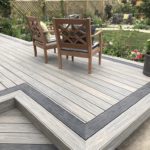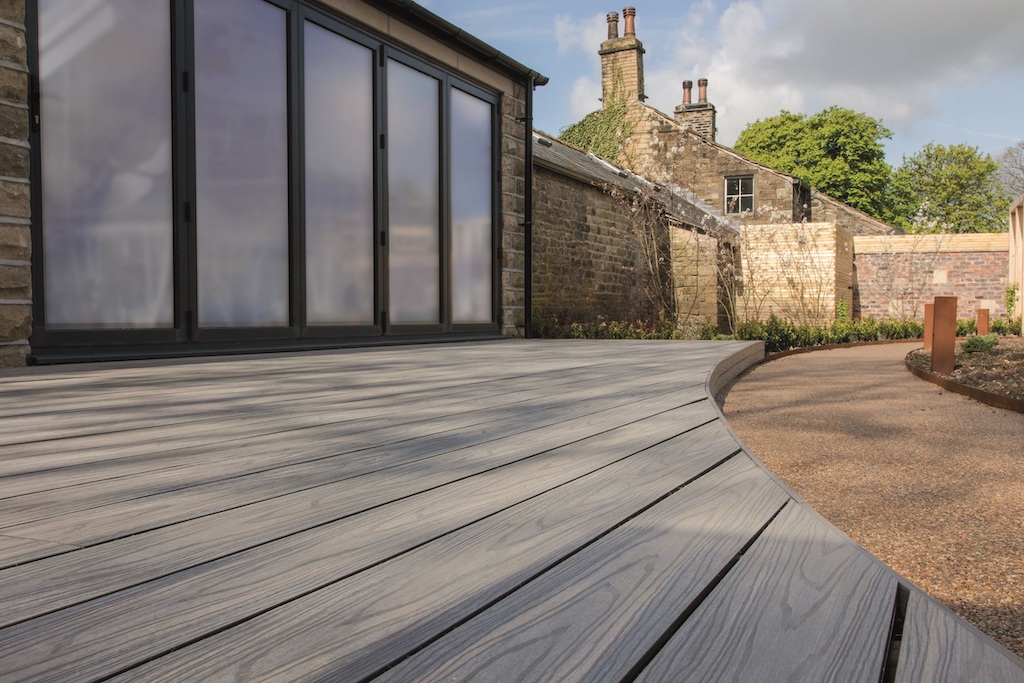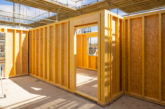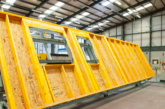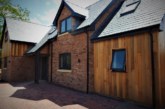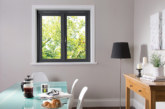Charles Taylor, sales director at Composite Prime explores the benefits of composite products in comparison to timber and how they can be used to add value to a development.
Alongside home interiors, which have undergone a thorough re-evaluation under Covid-19, the garden has also experienced a renaissance, becoming the focal point of social lives and relaxation for many. Homeowners are placing levels of importance on their gardens never before seen.
When buying quality homes, people will be looking for those with a quality garden that adds value to the home, rather than simply an empty space that fulfils the most threadbare requirements. At a time when grass isn’t even guaranteed in a volume-built new build, it is important that the gardens in your project go the extra mile and offers buyers a ready-made solution that they can begin enjoying straight away.
When it comes to garden decking, composite decking is certainly something to consider, due to its low maintenance and durable properties. It also has the ability to stay free from cracks and splinters, increasing its lifespan and making it bare-foot safe for homeowners old and young.
Composites are manufactured from a combination of recycled plastics and wood flour, which is a waste product of hardwood production. The wooden fibres and plastic shavings are then combined with colour pigments before being heated and extruded. The plastic content gives the boards a long lifespan without the need to treat or seal the decking, while the wood content enables the product to retain its natural look and feel.
The material’s versatility in colour and texture allows builders to create completely bespoke designs to tailor outdoor living areas. Although traditional timber decking has been the preferred choice of many for years, it requires annual painting and staining. This is in contrast to composite decking, the long-term simplicity of which could result in happier home buyers.
Composite decking’s unique formula makes it more durable than traditional products and it can be easily levelled to match the inside of a house, creating greater accessibility and an easier transition between spaces.
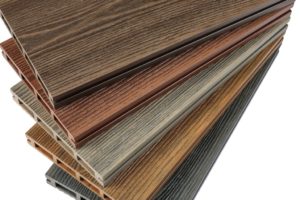 Green alternative
Green alternative
Making sustainable choices when it comes to developing and designing gardens is crucial to ensure we begin to combat the growing crisis around waste. Composite decking has a number of environmental benefits; as a result, consumers are choosing to switch to composite materials instead of using plastic, as they provide a much more sustainable and genuine alternative to timber.
The HD Deck range manufactured by Composite Prime is eco-friendly and socially responsible. Made using recycled plastic and FSC-certified oak wood flour, the products are sustainable, ethical and environmentally friendly.
One million plastic bottles are bought every minute around the world – and that number will top half a trillion by 2021. Less than half of those bottles are recycled. As a result, consumers are switching to composite materials to encourage global challenges around plastic waste. Composite Prime has recycled the equivalent of 50 million plastic milk bottles and 121,500,000 plastic bottle caps from landfill and 280 plastic bottles per square meter of decking are recycled.
One of the key benefits of Composite Prime decking is also the ease with which the product can be installed. Whilst traditional decking options can often be laborious and tricky to take on, requiring specialist tools, the HD Deck range has a secret clip system that is easy to install.
HD Deck Dual decking boards developed by Composite Prime have a reversible two-colour option on each board which not only saves spaces in warehouses, but also offers the opportunity to lay a deck with contrasting colours to create a bespoke finish. The dual-sided board also makes it easy to refresh the deck by simply turning the boards over to reveal the new colour.
The boards are 3D embossed with wood grain to ensure they look natural, and are capped to increase protection against fading, staining and other potentially damaging elements.

